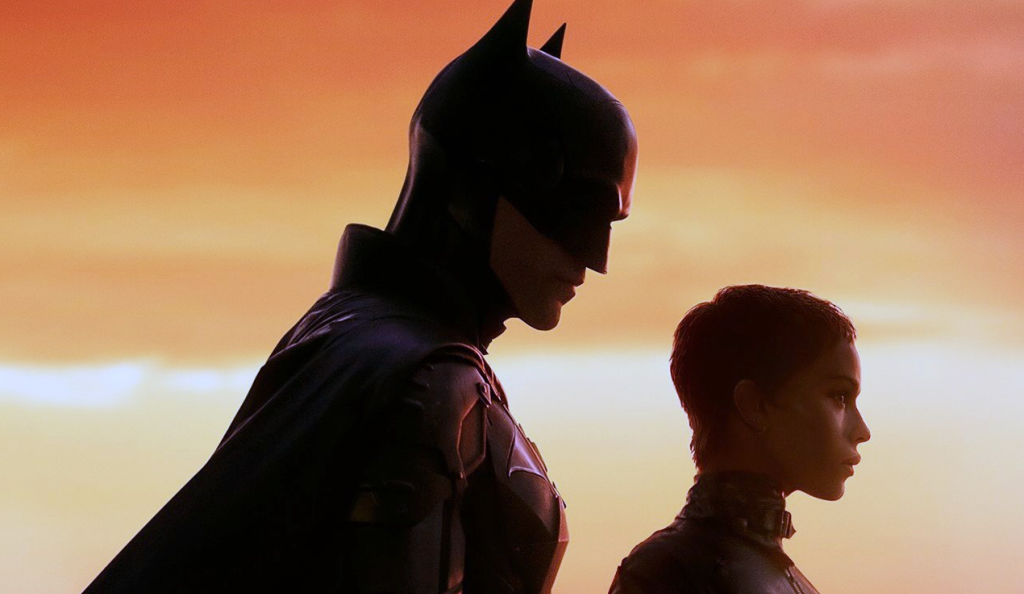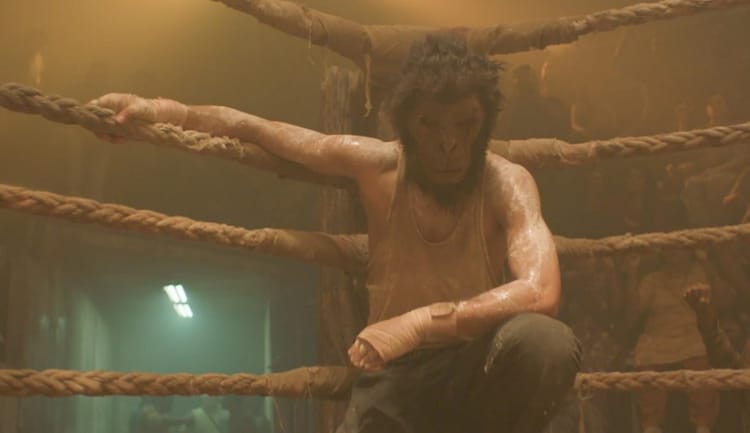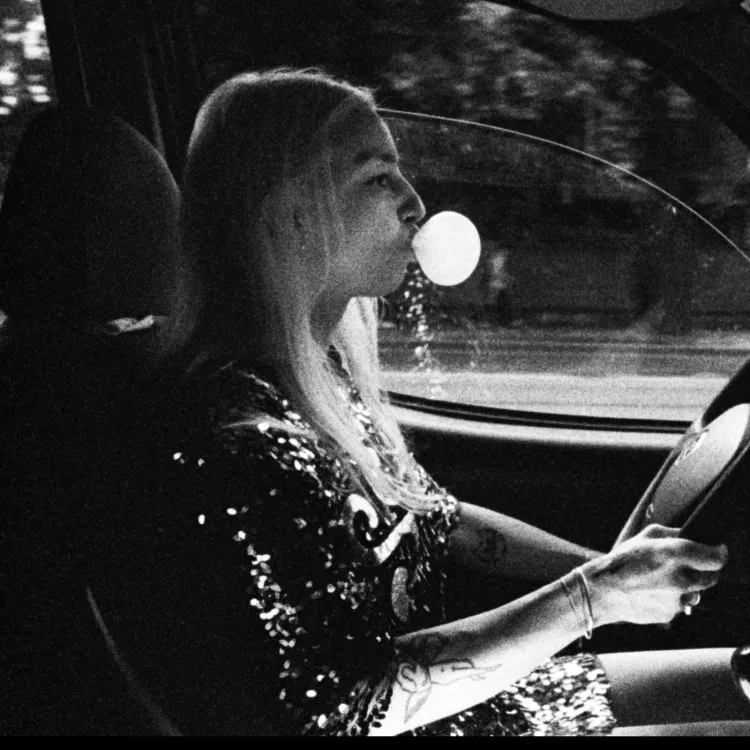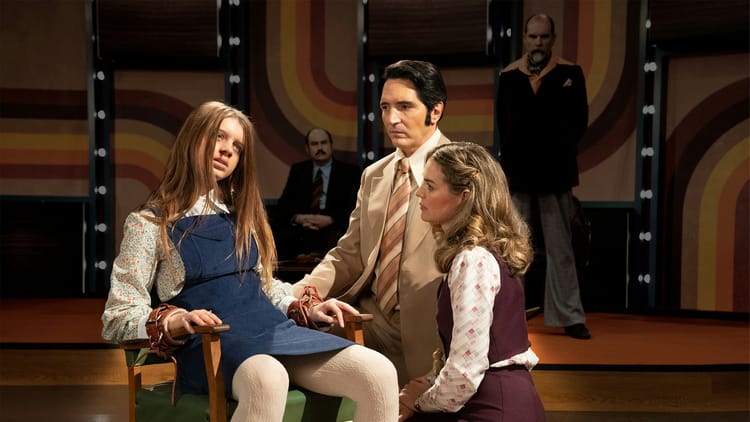The Batman vs. Bruce Wayne

In an issue of Wonder Woman in 2017, Wonder Woman meets Superman and Batman for the first time. Unable to understand each other, she offers them her Lasso of Truth, to act as a translator. She is Diana, Princess of Themyscira, daughter of Hippolyta, he is Clark Kent and Kal-El, and Batman, holding onto the Lasso, whose magic forces its user to tell the complete truth, declares he is Batman. Not Bruce Wayne, billionaire philanthropist, heir to the Wayne fortune, CEO, recluse, misanthrope. No. He is Batman.
The secret identity has been essential to the superhero since its inception. High schooler Peter Parker balances home economics with fighting the Green Goblin, Superman connects to a world he could be soaring above as journalist Clark Kent, at night, Matt Murdock catches the criminals he can't indict as Daredevil. And then we have Bruce Wayne, who, at this point, has been played by six (eight if we count Lego Batman and the Batman cartoon) different men. Bruce has been the playboy, the CEO, the orphan, the man in a suit who fights crime in leather. But has Bruce ever been the Batman? Or rather, has the Batman ever been Bruce?
That's the biggest thing Matt Reeves, director and writer of The Batman, brings to his iteration of the Caped Crusader. As far as his Batman is concerned, Bruce Wayne died with his parents. Sure, sometimes Batman pretends to be Bruce Wayne. But that's a façade. That's the mask, not the hardened cowl over his head.
This isn't a new idea, especially in the comics. There's the example with the Lasso of Truth, but there's also plenty of other times Batman chooses other things to identify himself as, saying things like, he is the night, he is vengeance, he is justice, the shadow, the enemy of crime in Gotham City.
But what Reeves does, with Pattinson's melancholic, moody performance, is point out that that isn't a good thing. Thinking you are the Batman? Thinking you are the physical embodiment of the concept of vengeance? Journaling because you cannot tell the brawls apart anymore? That's not a nice way to live! Nor is it one to be emulated. It is physical violence released onto others, and it is emotional violence inflicted on yourself.
Christopher Nolan's "The Dark Knight" skirted over this when Bruce Wayne encounters a bunch of men copying the Batman to fight crime. Bruce ties them up, and one of them asks, "What gives you the right? What's the difference between you and me?" And Bruce retorts, "I'm not wearing hockey pads." It's a funny joke, but it's also saying something deeper. Yes, Bruce is just a man. But in Nolan's trilogy, there is something exceptional about him, his character, that makes him worthy of the mantle of Batman.
Pattinson's Batman is not exceptional. Rather than seamlessly gliding into the night, he dreads the fall before his para-suit catches the wind. He presents to the criminal world that he's infallible and indestructible, but we see the truth. He is very fallible and he is certainly destructible. Moreover, he's self-destructive, and not in the way Nolan's Batman was. Nolan's Batman was a martyr, giving his life for justice. Pattinson's Batman is fighting because he needs to fight. He's not here to inspire. He's here because there is a hole inside him that can only be filled with violence.
Superhero movies often make assumptions about what we know and feel about the characters. "Captain America: Civil War" is a perfect example of this; the entire movie is predicated on the fact that we care about Bucky, based on the meagre bits the films have provided, and not Steve Bucky fanfic. "The Batman" does the same. Some of these assumptions work; we didn't have to see Martha Wayne's pearl necklace shatter and fall into the drain. Some of these assumptions don't; a major element of the movie relies on the fact that we care about Batman and Andy Serkis' Alfred's relationship. Michael Caine's "I failed you" monologue in "The Dark Knight Rises" works because we get three movies worth of Alfred and Bruce's relationship. "The Batman" assumes we already buy into their dynamic. The benefit of that is that we don't have to wade through forty minutes of dialogue before Batman says to Alfred, "You're not my father." The drawback is that not all audience members may care. I didn't really care. It didn't impede my enjoyment but that dynamic isn't as sharp in the storytelling in the rest of the movie.
I am sure there are scenes between Serkis and Pattinson laying on the cutting room floor. Because this is a very, very dense movie. Unlike prior Batman films, Batman actually has a real mystery to solve. And mysteries have suspects, clues, false leads, breakthroughs. In that, "The Batman" has more in common with David Fincher's "Se7en" or "Zodiac" than it does with Nolan's "The Dark Knight". The Batman is trying to solve a mystery, and he has to do it with more than his fists. He does use his fists. But as the story progresses, we start to see that's more for him than anyone else.
To complement Batman's dysfunctions is Zoe Kravitz's Selina Kyle, or Catwoman. As the film's publicity suggested, there is romance. But unlike other onscreen romances, their first kiss isn't earned by their connection. Instead, it's based on what they lack in themselves. It isn't Peter Parker and Mary Jane. These are two dysfunctional people, hurt by trauma, who can't actually heal each other's scars. It makes for a more believable superhero romance, albeit more cynical.
Rounding out the trinity is Paul Dano as the Riddler. Paul Dano is playing the logical endpoint of his many roles over the years, and he does it perfectly. He isn't a pastiche of Heath Ledger's Joker, nor is he a hulking blue-skinned alien, draped in CGI. He's a genuine weirdo, whose oddness unfurls as the movie unravels. There's a great acting decision made by Dano, when a stretched "I" turns into a wail. I hope that wail is all the creep leaving Dano's system, leaving him to explore more joyful roles.
Now you're probably thinking. Great. Another downer. Just what we need. Another movie that takes itself too seriously. But here's the real shocker: "The Batman" is a pretty funny movie, though not funny, like the MCU with quips or references to the 90s. It's funny because of how serious its characters are. The cops don't swarm over Batman neatly, no, they stumble through the station, tripping over each other. The Riddler's riddles are morbid, but the character's dedication to his bit is darkly funny. And Colin Farrell as the Penguin is genuinely funny, without ever shattering the grimness of Gotham. His humour is determined uniquely by his character, not the unified quip machine known as the MCU.
If you haven't noticed, I'm comparing "The Batman" to a lot of other movies. It's like and unlike Fincher, Nolan, the MCU. I also have no doubt that in future, plenty of people will be comparing films to "The Batman". Because it's a new form of super-hero movie. It's grounded, yet stylish, serious, without dour, and firmly character-driven. And when I say character, I mean characters within this movie. It doesn't bombard us with other characters from other movies, nor does it attempt to set up its next five films. It does feature one "special appearance" but it doesn't weigh the movie down, nor is Matt Reeves keen on following up.
Because "The Batman" is a standalone mystery, that only the World's Greatest Detective can solve. It's a psychological thriller, about the failures of Gotham City. It's a cautionary tale about how the violent works of a vigilante can inspire all the wrong people. It's a story about the Batman, a man clad in shadows who doesn't respond to his old name.




